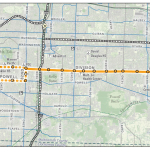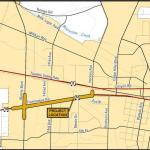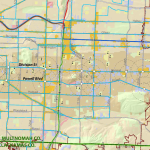The government wants to take your property, and you’ve heard that if “negotiations” with the government don’t work out, a lawsuit will result. There are a lot of myths and misconceptions surrounding litigation, including condemnation litigation. Let’s shed some light on the subject.
What gives rise to a condemnation lawsuit? Who files the lawsuit?
If you cannot reach agreement with the government as to just compensation after initial negotiations, the government must file a condemnation lawsuit to obtain possession of and title to the property. The condemnation lawsuit is formally initiated by the filing of a “Complaint.” The Complaint will name the property owner and, typically, all holders of legal interests in the property (mortgage lenders, etc.) as defendants in the lawsuit. ORS 35.245. The Complaint will also describe the government’s eminent domain powers, allege that the property is necessary for a particular public use, and allege the amount the government contends is just compensation. ORS 35.255. The government’s just compensation allegation will most likely restate its original offer to you.
Is arbitration available?
Yes, arbitration is available in certain circumstances at the election of the property owner. Arbitration is a process similar to trial, but less formal. In arbitration, rather than have a judge or jury decide the case, an experienced attorney or retired judge acts as the sole decision maker or “arbitrator.” If the total amount claimed by any party as just compensation does not exceed $20,000, you may elect binding arbitration, meaning that the decision of the arbitrator is final and not appealable except for very limited reasons. If the total amount claimed by any party exceeds $20,000, but is less than $50,000, you may elect non-binding arbitration, which allows either party unsatisfied with the outcome of the arbitration, to appeal the case for a normal trial. ORS 35.346(6).
How long does the lawsuit take?
A condemnation lawsuit may last between 12 and 24 months if it goes all the way through trial. That being said, the lawsuit can possibly settle at any time.
What happens in the lawsuit before the trial?
Prior to the trial, there are a number of important milestones following the Complaint.
• Immediate Possession: If the government needs immediate possession of the property, which is often the case for construction purposes, it will typically file a “Notice of Immediate Possession” at or near the time of the Complaint. ORS 35.352. The Notice of Immediate Possession basically moves the court for an order allowing the government to take possession of the property prior to the trial and judgment on its value. Except in the most extreme of cases, the court grants such requests.
• Deposit of Funds by Government; Property Owner Withdrawal: In order to obtain immediate possession, the government must deposit with the court what it contends is just compensation for the taking of the property. ORS 35.265. Upon order of the court, you are then permitted to withdraw those funds from the court without prejudicing your case. ORS 35.285. The withdrawal process can be more complicated if there is more than one defendant.
• Property Owner’s Answer: Your “Answer” is the formal response to the government’s Complaint. It is generally due 30 days after the filing and service of the Complaint, and failure to timely file an Answer may result in you being “defaulted” or forfeiting the right to contest the government’s contention of just compensation. The Answer responds to the government’s allegations, sets forth any available defenses to the government’s exercise of its eminent domain power, and alleges the amount you believe to be just compensation for the property taken and, as applicable, damages to the remaining value of the property. ORS 35.295. In certain situations, you may also allege in coordination with the Answer counterclaims against the government, including those for “inverse condemnation.”
• Discovery: “Discovery” is the formal process by which parties to a lawsuit obtain documents and information from each other prior to trial. This process may involve requests for production of documents, requests that parties admit certain facts, and depositions of parties. The parties may also request documents from and depositions of third parties by way of subpoena. In Oregon state court, there is no “expert discovery,” so a party may not seek documents from or depose the other party’s appraiser and other experts prior to trial.
• Exchange of Appraisals: While the government must in most cases provide the property owner an appraisal with its original offer, and the parties may exchange subsequent appraisals at any point in the process as part of their negotiations, Oregon law requires the exchange of appraisals at certain times prior to trial. Appraisals not exchanged prior to trial cannot be used at trial. ORS 35.346(5).
• Settlement Conference or Mediation: Many courts will require the parties to engage in a judicial settlement conference before allowing a case to proceed to trial. The parties may also engage in private mediation.
• Pre-Trial Motions; Jury Instructions: Immediately prior to trial, the parties will typically file motions with the court seeking the exclusion of certain evidence that may be irrelevant, unduly prejudicial, or otherwise inconsistent with the rules of evidence. These motions are designed to limit the information that reaches the jury, and the orders arising from them are very important to how the case is tried. The parties will also propose to the court instructions the judge should give to the jury regarding the law the jury must implement. The court’s wording of the jury instructions can significantly influence the conduct of the trial and the jury’s verdict.
• Jury Selection: The jury selection process is technically part of the trial, but it takes place prior to what most people think of the as the beginning of the trial—opening statements. The jury selection process entitles the property owner and the government to question and challenge potential jurors in a process called voir dire. More art than science, jury selection can have major impacts on the outcome of the trial.
Will I testify?
Yes, in many cases you, as the property owner, may testify regarding your opinion of the value of the property taken and, as applicable, the damages to the remaining value of the property.
Who else will testify?
Depending on the nature of the taking, a variety of fact and expert witnesses may testify at trial as to just compensation. These witnesses will include, in the least, the respective appraisers hired by the government and the property owner.
Will the jury view my property?
Yes, in many cases the jury will take a court-sanctioned “field trip” to view the property. Either party may request the jury view by motion to the court prior to the formation of the jury. ORS 35.315. In many cases, by the time of trial and the jury view, the government has taken possession of the property and the project for which the property was taken is under construction or complete. The jury view typically happens right before or right after the lawyers’ opening statements to the jury.
How long will the trial take? How does it progress?
Generally, a trial on a condemnation action will take four days. Depending on the complexity of the case and the number of witnesses for each side, the trial could last longer. After the steps already described above (jury selection, jury view, opening statements), and if the property owner elected to proceed first in the presentation of evidence under ORS 35.305, the property owner’s lawyer will present its case through the testimony of witnesses and presentation of documentary and demonstrative evidence. The government’s lawyer will then present its case in a similar fashion. After the parties are given the opportunity to call rebuttal witnesses, the court will give the jury its final instructions on the law, the lawyers will give closing arguments, and the jury will retire for deliberations on the verdict. It should be noted that the order of the trial may be altered by the judge in certain respects.
What happens after the jury returns a verdict?
The verdict is reduced to a judgment, which is a document that states the just compensation the government must pay the property owner. Upon the government satisfying the judgment, it also operates to transfer title to the property to the government. ORS 35.325. In many cases, the property owner is also then entitled to petition the court for an award of attorney fees and costs. Based upon the court’s determination of the property owner’s reasonable attorney fees and costs, a supplemental judgment is typically entered requiring the government to pay the property owner in such an amount.
What kinds of fees and costs are involved in such a lawsuit?
Property owners can expect to incur attorney fees, expert witness fees, filing fees, the costs associated with appraising the property, related planning and engineering costs, and general expenses associated with litigation. Depending on the nature of the case, other types of fees and costs may be incurred. The amount of fees and costs varies widely depending on the complexity of the matter, the length of the dispute, and other factors.
Can I recover my fees and costs from the government?
In many cases, yes. Oregon law allows a property owner to recover fees and costs, as determined by the court, in three instances:
• If the amount of just compensation determined by the jury exceeds the government’s highest written offer in settlement submitted to the property owner before the government filed its Complaint, ORS 35.346(7)(a);
• If the court determines that the first written offer made by the government before filing the Complaint did not constitute a good faith offer of an amount reasonably believed by the government to be just compensation, ORS 35.346(7)(b); or
• The government “abandons” the condemnation lawsuit by dismissing it or filing an election not to take the property after the jury’s verdict, ORS 35.335.
If the government does not abandon the action, its first offer was in good faith, and the jury’s determination of just compensation does not exceed the government’s highest written offer before filing its Complaint, the government is entitled to a judgment against the property owner for certain limited costs and disbursements, but not attorney and expert witness fees. ORS 35.346(9).
The amount of fees and costs to which you are entitled may be affected by an “offer of compromise” by the government. An offer of compromise is a formal offer by the government to settle the case after filing the Complaint. If you do not accept the offer of compromise, but do not obtain a judgment after trial in an amount greater than the offer, your entitlement to fees and costs can be reduced and the government’s entitlement to costs and disbursements can be increased. ORS 35.300.
Finally, attorney fees and costs should be included in negotiations with the government, and they are often accounted for in settlement agreements reached with the government.
Can either side appeal? Am I entitled to fees and costs on appeal?
Yes, either the government or the property owner may appeal a judgment of the court. An appeal, however, will not prevent the government from taking possession of the property and using it for the designated public use. If you prevail on appeal, you are entitled to an award of reasonable attorney fees and costs incurred during the appeal process. ORS 35.355.
What is the effect of withdrawing funds awarded by the jury on my appeal rights?
If you withdraw from the court the compensation awarded by the jury and deposited by the government (as opposed to the government’s original deposit of its contention of just compensation), you will likely waive your right to appeal. ORS 35.365.





